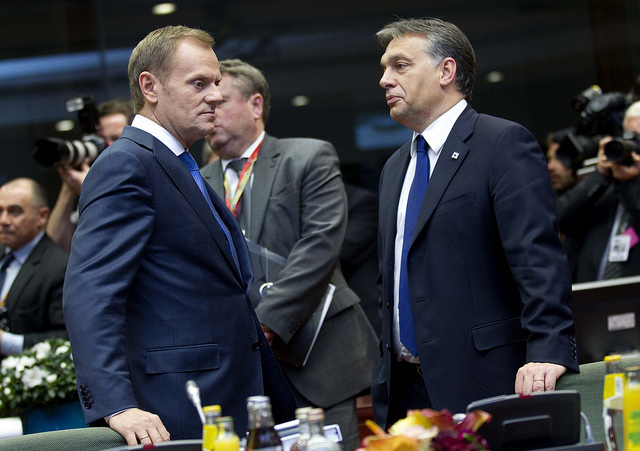Viktor Orban, Hungary’s prime minister, is well-known for his anti-migrant rhetoric. However, The Budapest Beacon recently reported that Donald Tusk, President of the European Council, wrote an official letter to the opposition in Hungary stating that Orban actually voted in favour of refugee resettlement quotas when this was decided at the European Council in February 2016.
In this admission, we see a classic example of European leaders agreeing to one thing in the consensus-driven European Council, the highest political body in the EU, only to go back to their capitals and blame Brussels for imposing its will on the country. Such practice is also highlighted in our recent report on Council Transparency.
Leaders and other decision-makers of EU countries are able to continue this Janus-faced approach because the Council, at all levels, lacks transparency. It is not possible to find out the position of a Member State until the end of a very long process when the decision is finally adopted. This means that countries are free to agree to things or oppose them without having to be accountable for them towards their citizens.
Orban is not alone in hiding behind the secrecy that Council and European Council decision-making provides. He is but the latest example.
By sending the letter, Donald Tusk has made a rare move: the position of a Member State on a specific decision was made public – something that is far from being the norm. Tusk used his position to hold Hungary (or Orban, at least) to account, simultaneously defending the integrity of the EU. The Council, both its members and the Secretariat, would be wise to learn from this episode. Only through publication of voting records at all levels of the Council, and thereby full accountability in decision-making, do EU governments have any chance of gaining back some of the voter’s trust and end the impression that decisions in Brussels are taken in secrecy and behind closed doors.
*Explanatory note: Decisions in the Council are mostly taken by consensus. This was the case in the decisions taken about migrant quotas, to which Viktor Orban raised no objections, thus giving his implicit agreement to the plan. It is highly unusual for the positions of Member States to be made public when decisions are taken by consensus. On the rare occasion that Member States vote, there vote is published online.



